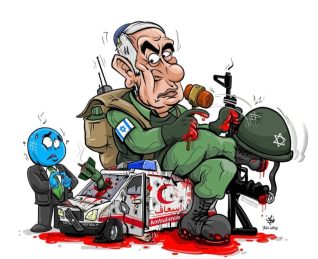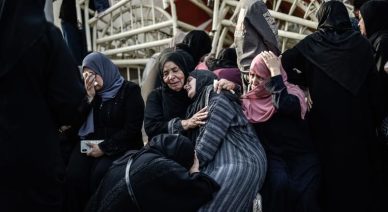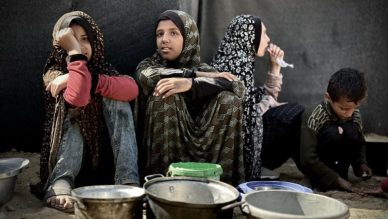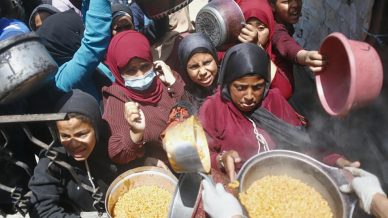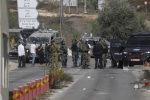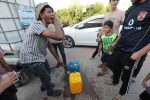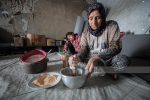GAZA, (PIC)
Amid the ongoing blockade and collapse of the healthcare sector, thousands of Palestinian families in the Gaza Strip face a severe malnutrition crisis, one of the most dangerous silent health disasters, which poses a threat to their children’s lives and futures.
As food and medical supplies diminish, the health situation worsens day by day, amid international silence and a failure of humanitarian responsibility.
Alarming figures pointing to imminent health catastrophe
Data from the Palestinian Ministry of Health (MoH) indicates that over 290,000 children under the age of five in Gaza are now in urgent need of nutritional interventions, while 150,000 pregnant and breastfeeding women require nutritional supplements and specialized healthcare.
Moreover, field reports reveal that cases of acute malnutrition reaching health centers range from 180 to 240 per month, with up to 60% requiring hospitalization due to complications.
Furthermore, health experts warn that these indicators represent a “ticking time bomb,” especially as the rate of hospital referrals has surged from 16% to 60% in recent months, which reflects the rapidly deteriorating nutritional conditions among vulnerable populations.
Severe symptoms and lasting consequences
Malnutrition in Gaza manifests in devastating ways, such as stunted growth, physical and mental developmental delays, muscle atrophy, and weakened immunity.
Dr. Rana Zaitri, head of the Therapeutic Nutrition Unit at Al-Awda Hospital, explains that most treated children suffer from chronic deficiencies in essential nutrients like iron, zinc, and vitamin A, which permanently affect their physical growth and cognitive abilities.
“We receive cases of children who cannot stand or speak at ages when they should be at their developmental peak,” Zaitri pointed out, warning that this constitutes a grave danger to the medical and social aspects of the children’s lives.
Vaccine and supplement shortages deepen the crisis
More than 600,000 children are at risk of life-threatening diseases, particularly polio, due to the ongoing blockade on basic vaccines, according to MoH.
Reports from the Palestinian Red Crescent indicate that severe shortages of therapeutic supplements, such as F-75 and F-100 therapeutic milk, have worsened children’s conditions, which left many mothers in helpless despair.
In a heartbreaking testimony, a displaced mother (S.H.) shares: “My baby won’t eat. I can’t afford to buy milk. There is no food and no medicine. He grows weaker every day before my eyes.”
Psychological and educational impact: A double burden
Malnutrition’s toll is not limited to physical harm. It profoundly affects children’s mental and behavioral health. Many suffer from concentration disorders, reduced learning capacity, and difficulty in engaging in social interactions.
Relief teams warn that these long-term effects can undermine academic performance and future opportunities, which turn malnutrition into a barrier to a child’s right to education and healthy development.
Birth defects and lack of prenatal care
For his part, Dr. Mohammad Abu Afash, Director of Medical Relief in the north of Gaza, has reported a rise in birth defects, which exceeds 25% in some areas.
Dr. Abu Afash attributes this steep rise to the use of prohibited weapons and a severe shortage of diagnostic and monitoring equipment, both of which hinder prenatal care and contribute to the growing crisis.
Calls for urgent international intervention
While this catastrophe still unfolds, demands are growing for immediately lifting the siege to allow entry of medical and food supplies, provide essential vaccines, and deploy international medical assessment teams who can investigate the humanitarian and health impacts of the deteriorating nutritional crisis in Gaza.
A generation at risk
Gaza’s malnutrition crisis is no longer a temporary emergency. It has become a chronic disaster threatening the physical, psychological, and educational future of an entire generation.
As doctors and mothers in Gaza struggle to hold onto hope, the international community must assume its moral and humanitarian responsibilities. Children must not be left to suffer the consequences of hunger and siege.



